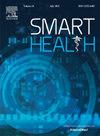ML-predicted surgical site infections: An epidemiological study utilizing machine learning on routinely collected healthcare data to predict infection risk
Q2 Health Professions
引用次数: 0
Abstract
Background
Surgical site infections (SSIs) are a major public health issue, causing increased morbidity, longer hospital stays, and higher healthcare costs. Despite progress in infection control, predicting and preventing SSIs remain crucial for improving patient outcomes. This study examines the use of machine learning (ML) on routinely collected healthcare data (RCD) to predict SSIs in orthopaedic surgery, aiming to improve risk stratification and guide interventions.
Objectives
To develop, test, and validate an ML predictive model using RCD to assess SSI risk in orthopaedic surgery patients.
Methods
A retrospective study was carried out using RCD from a 1.2 million population in an Italian Local Health Authority, covering surgeries from 2017 to 2021. The population included patients undergoing hip or knee arthroplasty and open reduction of fractures. Several ML algorithms, including eXtreme Gradient Boosting (XGBoost), were used for model development. The models’ performance was assessed by recall, accuracy, and area under the receiver operating characteristic curve (AUC). A feature importance analysis identified key SSI risk predictors.
Results
The XGBoost model demonstrated superior performance, with a recall exceeding 70% and an AUC>0.70, overcoming other methods. Significant predictors included the ASA classification, opioid use, priority class of the surgery operation, and length of hospital stay.
Conclusions
ML models, particularly XGBoost, effectively predicted SSI risk in orthopaedic patients, offering a new approach to infection control and prevention. Incorporating ML and RCD highlights the potential for scalable, data-driven personalized medicine interventions. Future research will focus on model validation and integration of these tools into healthcare systems for enhanced patient management.
机器学习预测手术部位感染:一项利用机器学习对常规收集的医疗数据预测感染风险的流行病学研究
手术部位感染(ssi)是一个主要的公共卫生问题,导致发病率增加、住院时间延长和医疗费用增加。尽管在感染控制方面取得了进展,但预测和预防ssi对于改善患者预后仍然至关重要。本研究探讨了机器学习(ML)在常规收集的医疗数据(RCD)上的应用,以预测骨科手术中的ssi,旨在改善风险分层和指导干预措施。目的开发、测试和验证一种使用RCD评估骨科手术患者SSI风险的ML预测模型。方法采用RCD对意大利地方卫生当局120万人口进行回顾性研究,涵盖2017年至2021年的手术。人群包括接受髋关节或膝关节置换术和开放性骨折复位的患者。几种ML算法,包括极限梯度增强(XGBoost),用于模型开发。模型的性能通过召回率、准确率和接收者工作特征曲线下面积(AUC)来评估。特征重要性分析确定了关键的SSI风险预测因子。结果XGBoost模型的召回率超过70%,AUC>0.70,优于其他方法。重要的预测因素包括ASA分类、阿片类药物的使用、手术的优先类别和住院时间。结论sml模型特别是XGBoost模型能有效预测骨科患者SSI风险,为感染控制和预防提供了新的途径。ML和RCD的结合凸显了可扩展的、数据驱动的个性化医疗干预的潜力。未来的研究将集中在模型验证和整合这些工具到医疗保健系统中,以增强患者管理。
本文章由计算机程序翻译,如有差异,请以英文原文为准。
求助全文
约1分钟内获得全文
求助全文

 求助内容:
求助内容: 应助结果提醒方式:
应助结果提醒方式:


